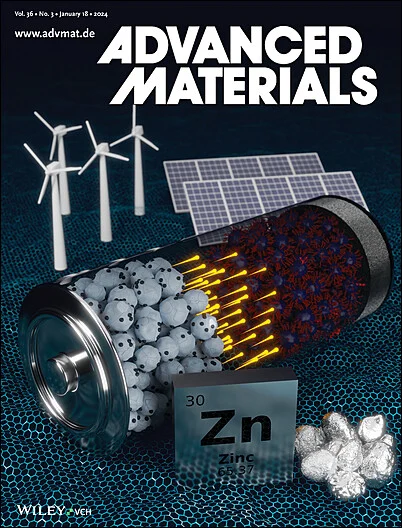Supramolecular Interface Engineering via Interdiffusion for Reusable and Dismantlable Polymer Adhesion.
IF 26.8
1区 材料科学
Q1 CHEMISTRY, MULTIDISCIPLINARY
引用次数: 0
Abstract
Controllable adhesion that enables both reuse and dismantling is a key requirement for sustainable materials and device integration. Here,a polymeric adhesion system is demonstrated based on reversible interactions at the interface, in which the association and dissociation of supramolecular complexes are externally regulated by thermal and chemical stimuli. By tuning the glass transition temperature (Tg) of the polymers, chain mobility and complex reformation are simultaneously optimized, leading to enhanced interdiffusion and bond recombination at the adhesion interface. Neutron reflectivity (NR) measurements with deuterium labeling revealed that the interfacial width increased with annealing temperature, reaching up to 24.4 nm at 200 °C after 24 hours. The presence of reversible bonds suppressed polymer interdiffusion despite promoting adhesion strength. The resulting materials exhibit excellent reusability and dismantlability under mild stimuli, with strong potential for applications in recyclable electronics, automotive manufacturing, and temporary assembly technologies.基于互扩散的可重复使用和可拆卸聚合物粘附的超分子界面工程。
可控制的附着力能够实现重复使用和拆卸,这是可持续材料和设备集成的关键要求。本研究展示了一种基于界面可逆相互作用的聚合物粘附系统,其中超分子复合物的结合和解离受到热和化学刺激的外部调节。通过调整聚合物的玻璃化转变温度(Tg),同时优化了链迁移率和络合物重组,从而增强了粘附界面的相互扩散和键重组。氘标记中子反射率(NR)测量表明,界面宽度随着退火温度的升高而增加,在200℃退火24小时后达到24.4 nm。可逆键的存在抑制了聚合物的相互扩散,尽管增强了粘附强度。所得材料在温和的刺激下表现出优异的可重复使用性和可拆解性,在可回收电子产品、汽车制造和临时组装技术方面具有很强的应用潜力。
本文章由计算机程序翻译,如有差异,请以英文原文为准。
求助全文
约1分钟内获得全文
求助全文
来源期刊

Advanced Materials
工程技术-材料科学:综合
CiteScore
43.00
自引率
4.10%
发文量
2182
审稿时长
2 months
期刊介绍:
Advanced Materials, one of the world's most prestigious journals and the foundation of the Advanced portfolio, is the home of choice for best-in-class materials science for more than 30 years. Following this fast-growing and interdisciplinary field, we are considering and publishing the most important discoveries on any and all materials from materials scientists, chemists, physicists, engineers as well as health and life scientists and bringing you the latest results and trends in modern materials-related research every week.
 求助内容:
求助内容: 应助结果提醒方式:
应助结果提醒方式:


